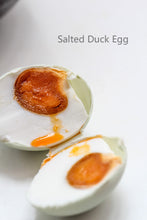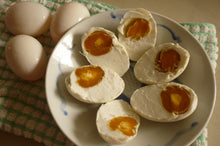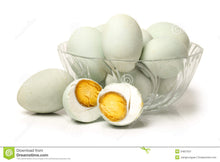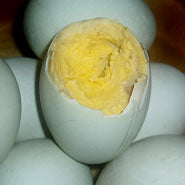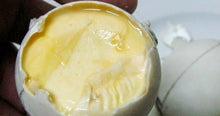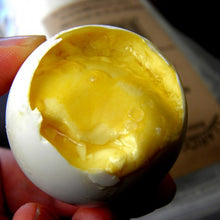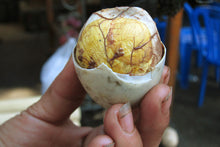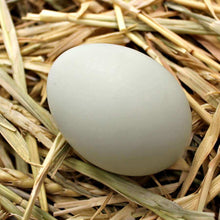
If you haven't tried duck eggs, you're in for a treat! From a longer shelf life to more nutrition, you may have heard some good things about duck eggs.
1. Duck Eggs Stay Fresh Longer
Duck eggs have a thicker shell. And a thicker shell means duck eggs stay fresh longer than chicken eggs.
2. Duck Eggs Are Different
Odds are, you know chicken eggs: been there, done that. Duck eggs taste a little different. The taste of a duck egg is a bit creamier and a bit richer than a chicken egg. Some people with chicken egg allergies even find they are able to eat duck eggs.
3. Duck Eggs Are Bigger
Duck eggs are bigger than normal chicken eggs. The egg white of a duck egg contains more protein (9 grams of protein with a duck egg; 6 grams for a chicken egg), and the yolk is larger in proportion to the egg white compared to a chicken egg. The larger yolk has a higher fat content, more healthy fats and even a little more cholesterol.
While on the subject of size, if you are curious about other types of eggs, quail eggs are tiny, about half the size of a chicken egg, and goose eggs are enormous, about twice the size of a duck egg.
4. More Healthy Omega-3 Fatty Acids in Duck Eggs
Omega-3's contribute to heart health and may reduce inflammation. Some researchers believe inflammation may contribute to heart disease and cancer.
5. More Vitamin D in Duck Eggs
Duck eggs oftentimes have more Vitamin D, particularly if they are pasture-raised. Vitamin D supports bone health and skin, as well as mood. Ducks who roam around outside (also known as pasture-raised) are far more likely to have higher levels of vitamin D from sunlight.
6. More Essential Vitamins and Minerals
Duck eggs may be higher in essential vitamins and minerals like thiamin, niacin, riboflavin, pantothenic acid, folate, vitamin B6, vitamin E, vitamin A, vitamin B12, and retinol.
Of course, the egg yolk quality and nutrition depend on what the duck eats. Ideally, ducks have access to the outside to eat plants and bugs, just like chickens, and their eggs will reflect this.
7. Duck Eggs Are a Baker's Secret Ingredient
Do you bake? Duck egg whites will give you fluffier cakes, taller meringue peaks, and lighter cookies. The secret is in the higher protein content of duck egg whites than in chicken egg whites, which makes them easier to cook with.
Â







